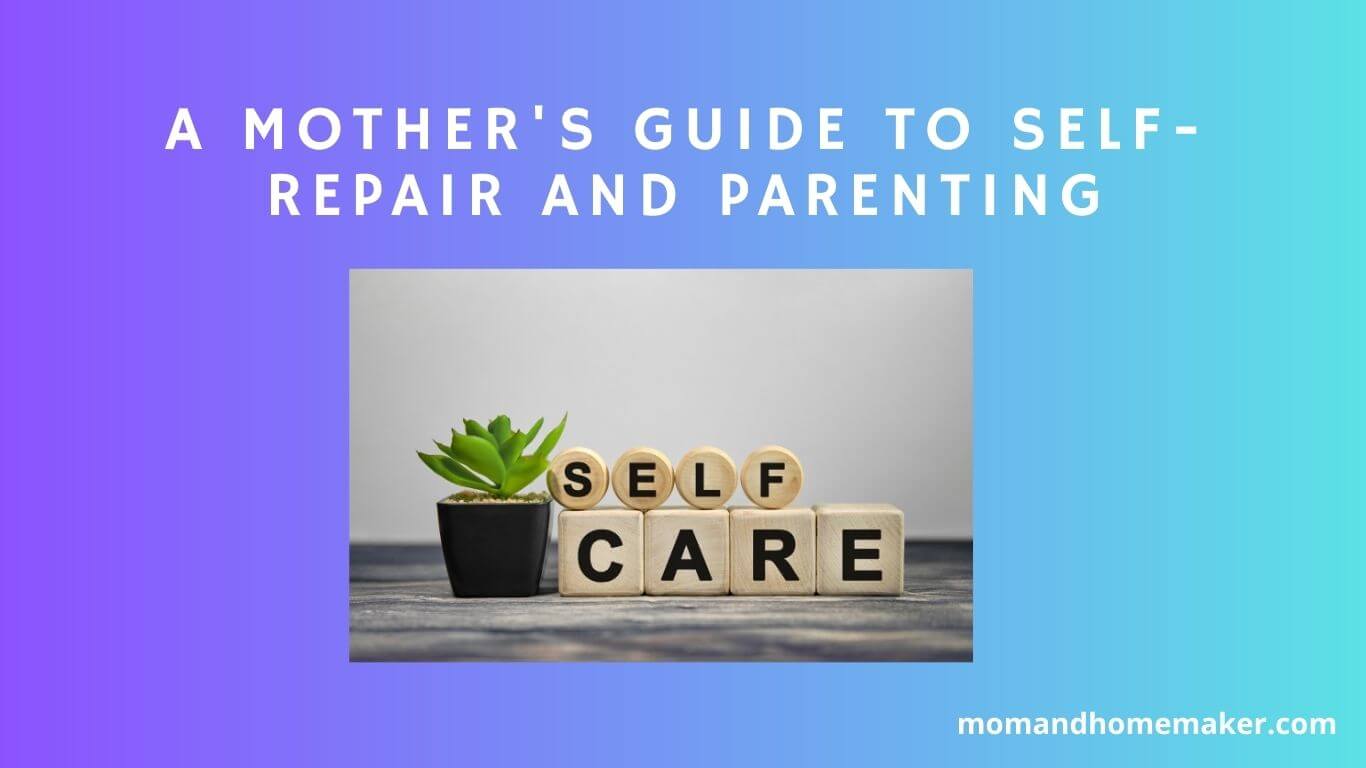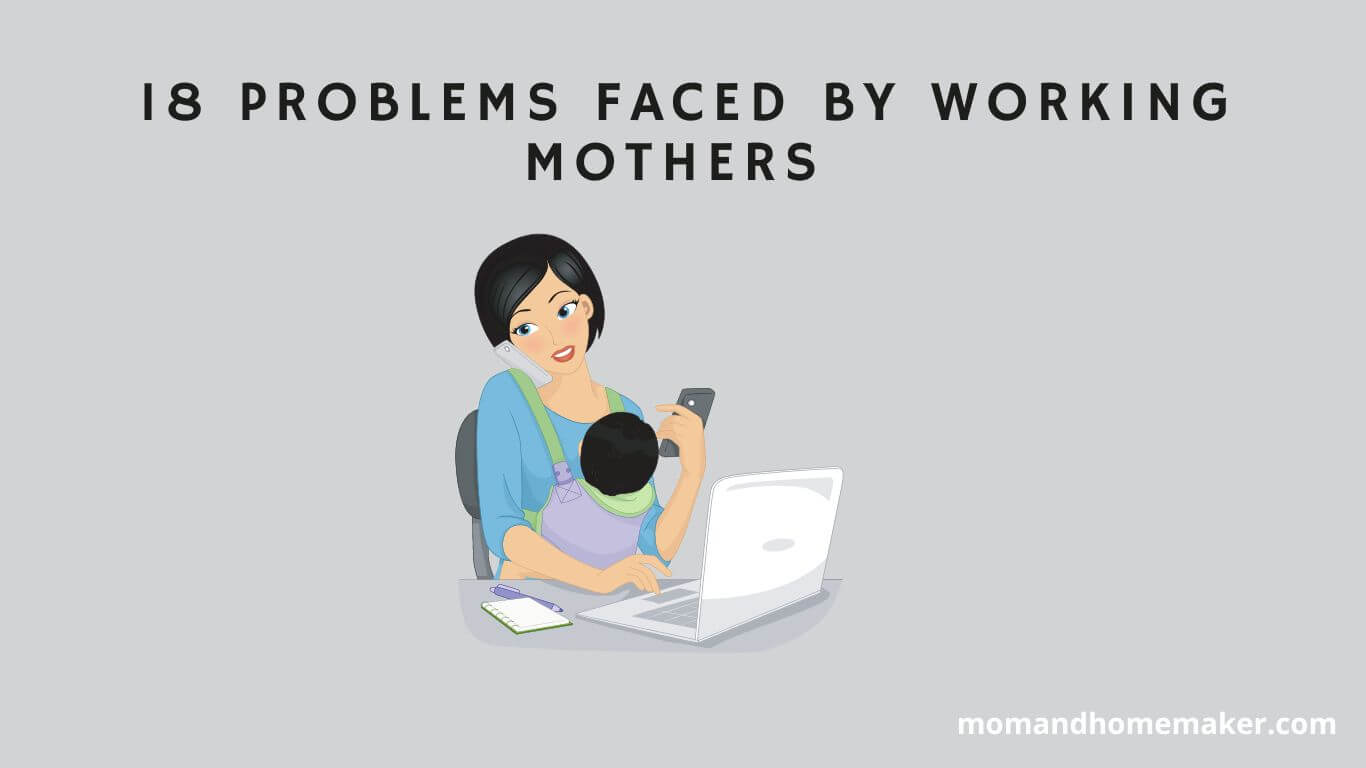Being a parent is one of the most fulfilling experiences in life, but it can also be one of the most challenging. As a parent, it’s important to provide your child with the love, guidance, and support they need to thrive. However, it’s not always easy to know how to be a supportive parent. Every child is different and requires different types of support, and every parent has their own parenting style and beliefs.
Some essential tips and strategies for how to be a supportive parent that will help you build a strong and healthy relationship with your child will be discussed in this article. From setting boundaries to practicing active listening, we’ll cover everything you need to know to be the best parent you can be.
These are just a few of the ways you can be a supportive parent, and we will delve deeper into these topics and more in the following sections.
Table of Contents
1. The Importance of Being Present for Your Children
You’ll love learning why being there for your kids is so crucial. Being present is more than just physically being in the same room as your children. It’s about creating an emotional connection and spending quality time with them.
When you prioritize being present with your children, you show them that they are a priority in your life. Children crave emotional connection with their parents. They want to feel seen, heard and understood. When you make an effort to be present with your children, you are showing them that you care about them and that their feelings matter.
This emotional connection helps to create a strong bond between you and your children that will last a lifetime. Quality time is another important aspect of being present for your children. It’s not just about being physically present; it’s about actively engaging with your children and creating special moments together.
Whether it’s playing a game, going for a walk, or simply having a conversation, quality time helps to strengthen your relationship with your children and build happy memories that they will cherish for years to come. Make an effort to be present with your children and watch your relationship with them flourish.
2. Active Listening: How to Really Hear Your Child
Truly tuning in to your child’s thoughts and feelings through active listening can create a closer connection. Active listening is a skill that requires mindful communication, empathetic responses, and a non-judgmental approach.
When you actively listen to your child, you’re showing them that you value their thoughts and feelings, and this can create a safe space for them to open up to you.
To actively listen to your child, start by giving them your full attention. Put down any distractions and make eye contact with them. As they speak, show that you’re engaged by nodding or making small verbal cues.
When they finish speaking, reflect back on what they said to ensure that you understood correctly. This shows that you were listening and gives your child a chance to clarify anything they may have said.
Empathetic responses are also important when actively listening to your child. This means acknowledging their feelings and showing that you understand how they feel. For example, if your child is upset about a friend who didn’t invite them to a party, you might say, “That must be really hard. It sounds like you feel left out.”
By responding with empathy, you’re validating their feelings and letting them know that you’re there to support them. Active listening is not about finding a solution to your child’s problems or offering advice. It’s about creating a safe space for them to express themselves and feel heard.
By practicing active listening, you’re showing your child that you care about them and their well-being.
3. Providing Positive Reinforcement and Encouragement
Encouraging and praising your child for their efforts and accomplishments can boost their self-esteem and confidence, leading to a happier and more fulfilled child. Behavioral reinforcement is a powerful tool for parents to use when guiding their children.
Positive reinforcement is a way to encourage good behavior by acknowledging your child’s positive actions with verbal praise or small rewards. This type of reinforcement helps to reinforce positive behaviors and helps your child to feel good about their accomplishments.
Motivational techniques can also be used to encourage your child to take on new challenges or strive towards goals. Encouraging your child to set goals and giving them the tools to achieve them can help to build their self-esteem.
For example, if your child is struggling with a subject in school, offer to help them study and set a goal for them to improve their grade. Celebrate their progress as they work towards their goal and encourage them to keep going.
Building self-esteem in your child is crucial to their development. Providing positive reinforcement and encouragement, as well as using motivational techniques, can help to build their confidence and self-worth.
As a parent, it’s important to know that your words and actions can have a profound impact on your child’s emotional well-being. By praising their efforts and accomplishments, you can help to create a positive and supportive environment for your child to thrive in.
4. Setting Boundaries and Limits with Love
When it comes to raising your child, it’s important to set boundaries and limits with love to ensure their safety and well-being. Communication strategies are key to setting effective boundaries.
Talk to your child about why certain rules are in place and make sure they understand the consequences of breaking them. Encourage open communication and listen to your child’s concerns and opinions.
Consistency is also essential when it comes to setting boundaries. Stick to the rules you’ve established and follow through with consequences when necessary. This will help your child understand that you mean what you say and that there are consequences for their actions.
However, it’s important to balance freedom and responsibility. Allow your child to make choices and learn from their mistakes, but also provide guidance and support along the way.
Remember to approach setting boundaries and limits with love and understanding. Your child is still learning and growing, and mistakes will happen. Be patient and supportive, and always reinforce positive behavior.
5. Being a Role Model for Your Children
Leading by example is an effective way of teaching your kids how to behave and act. They observe and absorb everything that you do, so it’s important to show them the right way. If you want your children to communicate effectively, then start by doing so yourself. Talk to them openly and honestly, and encourage them to express their feelings and thoughts.
Being a role model can also foster creativity and curiosity in your children. Children are naturally curious, and they love to explore and discover new things. As a parent, you can encourage this curiosity by being creative yourself. Show them how to think outside the box, and teach them to embrace their individuality. By doing so, you’ll inspire them to be more creative and curious in their own lives.
Communicating effectively, fostering creativity and curiosity, and leading by example are all important aspects of being a role model for your children. By doing so, you’ll not only help them become better people, but you’ll also create a stronger bond between you and your child.
6. Supporting Your Child’s Emotional Development
It’s crucial to understand and nurture your child’s emotional growth for their overall well-being. As a supportive parent, you play a key role in helping your child develop empathy, promote self-awareness, and nurture emotional intelligence.
Here are some ways you can support your child’s emotional development:
- Teach empathy by asking your child how they think others feel in certain situations and encourage them to put themselves in other people’s shoes.
- Promote self-awareness by encouraging your child to identify and express their emotions. Help them label their feelings and validate them by saying things like, “I understand why you feel that way.”
- Nurture emotional intelligence by modeling healthy emotional expression yourself. Show your child that it’s okay to feel and express a range of emotions, and teach them healthy coping mechanisms for dealing with difficult emotions.
By supporting your child’s emotional development, you help them build resilience and develop strong social skills that will serve them well throughout their lives. Be patient and consistent in your efforts, and don’t hesitate to seek outside help if you feel your child needs additional support.
7. Nurturing Your Child’s Mental Health
To help your child thrive mentally, it’s important to nurture their emotional well-being and provide them with the tools they need to cope with life’s challenges.
One way to do this is by identifying triggers that may cause your child to feel overwhelmed or anxious. This could be anything from a stressful school project to a difficult family situation. By being aware of these triggers, you can help your child prepare for them and develop healthy coping mechanisms.
Another important aspect of nurturing your child’s mental health is seeking professional help when needed. This could mean seeing a therapist or counselor who can provide your child with additional support and guidance. Don’t be afraid to reach out if you notice your child struggling with their emotions or behavior. Remember that seeking help is a sign of strength, not weakness.
Encouraging open communication is also crucial for supporting your child’s mental health. Let your child know that they can come to you with any problem or concern without fear of judgment. Listen actively and offer empathy and support, even if you don’t have all the answers.
By creating a safe and supportive environment, your child will feel more comfortable sharing their thoughts and feelings, which can help them develop a stronger sense of self and better cope with life’s challenges.
8. Encouraging Healthy Habits and Lifestyle Choices
Encouraging your child to adopt healthy habits and make positive lifestyle choices can help promote their mental well-being, like a ray of sunshine on a cloudy day. As a supportive parent, you can play a significant role in helping your child develop healthy habits that will benefit them for life. Here are some tips to help you get started:
| Tips to Encourage Healthy Habits and Lifestyle Choices | Explanation |
|---|---|
| 1. Healthy Eating | Encourage your child to eat a balanced, nutritious diet that includes plenty of fruits, vegetables, whole grains, and lean proteins. Limit their intake of processed foods, sugary drinks, and snacks high in salt and fat. Involve your child in meal planning and preparation, and make healthy eating fun by trying new recipes and exploring different cuisines. |
| 2. Exercise Motivation | Regular physical activity is key to maintaining good health and reducing stress. Encourage your child to find activities they enjoy, whether it’s dancing, swimming, playing team sports, or going for a bike ride. Set a good example by being physically active yourself and making exercise a family priority. Celebrate your child’s successes and encourage them to set realistic goals for themselves. |
| 3. Stress Management | Stress is a normal part of life, but too much stress can take a toll on your child’s mental and physical health. Encourage your child to identify what triggers their stress and develop healthy ways to cope, such as deep breathing, meditation, or talking to a trusted friend or family member. Teach them the importance of taking breaks, getting enough sleep, and setting boundaries to manage their stress levels. |
By encouraging healthy habits and positive lifestyle choices, you can help your child build a strong foundation for a healthy and happy life. Remember to be patient and supportive as your child navigates these changes, and celebrate their progress along the way.
9. Helping Your Child Build Resilience and Coping Skills
Building resilience and coping skills are essential for children to grow into healthy and emotionally intelligent adults. As a supportive parent, you play a crucial role in helping your child build these essential life skills.
One way to build resilience is to teach your child how to reframe their negative thoughts into positive ones. This can be done by creating a 2-column and 4-row table, where column one lists negative thoughts and column two lists positive reframes. For instance, if your child thinks “I can’t do this,” you can help them reframe it to “I can do this, but it may take some time and effort.” This exercise can help your child see the positive side of things and build a more positive outlook on life.
Another way to help your child build resilience and cope with stress is to encourage them to engage in physical activities. Exercise has been shown to improve mental health, reduce stress, and improve mood. By encouraging your child to engage in physical activities such as sports, dancing, or yoga, you are helping them build resilience and cope with stress in a healthy way. Building resilience and coping skills takes time and effort, but by being a supportive parent, you can help your child develop these essential life skills.
10. Supporting Your Child’s Education and Academic Success
You can help your kid ace their classes and reach their academic goals by becoming an active part of their educational journey. It’s crucial to establish effective communication with your child’s teachers to know their strengths and weaknesses.
You can also ask for feedback on how to support their education, set goals for your child, and find ways to help them achieve their academic aspirations. Parental involvement is a crucial factor in supporting your child’s education.
It can begin with regular communication with your child’s teachers and attending parent-teacher conferences to discuss their academic progress. You can also volunteer to chaperone school events, participate in fundraising activities, and join the school’s parent-teacher association (PTA) to stay informed about the latest developments and opportunities.
By supporting your child’s education, you can help them build their confidence, develop critical thinking skills, and achieve academic success. Establish effective communication with your child’s teachers, set academic goals, and get involved in their education.
As a supportive parent, you can help your child thrive in school and reach their full potential.
11. Fostering Independence and Self-Confidence
As your child grows, they need to feel empowered to make their own choices and embrace their unique qualities to develop into confident individuals.
One way to encourage autonomy is by allowing them to make decisions and learn from their mistakes. Instead of constantly dictating what they should do, give them the opportunity to make their own choices and take responsibility for the consequences. This will not only build their decision-making skills but also their self-esteem.
Another way to build self-esteem is by acknowledging their accomplishments and expressing pride in their efforts. Celebrate their victories, no matter how small they may seem, and encourage them to continue pursuing their passions. This will show them that you believe in their abilities and help foster confidence in their own capabilities.
Fostering confidence in your child can also be accomplished by providing a safe and supportive environment for them to express themselves. Encourage them to share their thoughts and feelings with you without fear of judgment. This will allow them to feel heard and validated, and in turn, build their confidence in their own voice and opinions.
12. Dealing with Challenging Behaviors and Difficult Conversations
When it comes to managing tantrums, try to remain patient and avoid reacting with anger or frustration. Instead, take a deep breath and try to understand why your child is upset. Once they’ve calmed down, you can then communicate with them about what happened and how they can express themselves in a more positive way next time.
Effective communication can make all the difference when dealing with challenging behaviors. Instead of scolding or punishing your child, try using positive reinforcement techniques to encourage good behavior. Praise them when they do something well and offer words of encouragement when they’re struggling. This will help build their self-confidence and reinforce positive behaviors.
It’s important to remember that difficult conversations are a natural part of parenting. Whether it’s discussing sensitive topics like puberty or addressing challenging behaviors, it’s important to approach these conversations with empathy and understanding. Listen to your child’s perspective and try to find common ground.
13. Handling Conflict and Resolving Disagreements
Handling conflict and resolving disagreements is a crucial aspects of effective parenting. As a parent, it’s important to understand that conflicts and disagreements are a natural part of any relationship, and it’s how you handle them that can make all the difference.
Conflict resolution strategies can help you navigate these situations with your child in a healthy way that can strengthen your relationship. One effective strategy is to practice effective communication. This means actively listening to your child’s perspective and expressing your own thoughts and feelings in a clear and respectful manner.
It’s important to avoid blaming or criticizing your child, and instead focus on finding a solution that works for both of you. By understanding different perspectives, you can work together to find common ground and move forward.
Another important aspect of conflict resolution is recognizing the value of compromise. It’s okay to have different opinions, but it’s important to find a middle ground that both you and your child can agree on. This can help build trust and mutual respect, and ultimately strengthen your relationship.
14. Building Strong Family Bonds and Connections
Creating strong family bonds is like building a sturdy foundation for a house – it takes time, effort, and a lot of love to ensure that everything stays together for years to come.
One of the most important aspects of building strong family ties is communication. Effective communication strategies can help family members understand each other’s needs, feelings, and perspectives. Encourage everyone to express themselves and listen actively without interrupting. This helps to foster trust and respect within the family.
Quality time activities can also help strengthen family ties. Participating in activities together, such as cooking, playing board games, or going on a hike, can create happy memories and strengthen the family bond. Make sure to schedule regular family time, such as a weekly family dinner or a monthly outing, to ensure that everyone stays connected. This also provides an opportunity to check in with each other and discuss any issues or concerns.
Strengthening family ties requires effort, but the rewards are immeasurable. When everyone in the family feels connected and supported, it creates a sense of belonging and security. Show appreciation and gratitude for each other, and celebrate milestones and achievements together.
By focusing on communication, quality time activities, and showing appreciation, you can build a strong family bond that will last a lifetime.
15. Embracing the Journey of Parenthood: Challenges and Rewards
Are you ready to embark on the amazing journey of parenthood, filled with both challenges and rewards? It’s a journey that will test your patience, resilience, and love. But it’s also a journey that will bring you immense joy and fulfillment.
As a parent, you’ll witness your child’s first steps, hear their first words, and watch them grow into their own unique personality. It’s a journey that’s not without its struggles, but the rewards are immeasurable.
Navigating parenthood together requires finding a balance as a parent. You’ll need to prioritize your child’s needs while also taking care of your own. It can be easy to lose yourself in the responsibilities of parenthood, but it’s important to remember that you’re still an individual with your own needs and desires.
Take the time to nurture yourself, whether it’s through exercise, hobbies, or simply taking a break. A happy and healthy parent makes for a happy and healthy family.
The joys of parenthood are countless, from watching your child learn and grow to experience the unconditional love that comes with being a parent. But parenthood is also full of challenges, from sleepless nights to navigating tantrums.
You’re not alone in this journey. Reach out to other parents for support and advice, and don’t be afraid to ask for help when you need it. Embrace the journey of parenthood, with all its ups and downs, and cherish every moment with your child.
Conclusion
Being a supportive parent is a crucial aspect of raising happy, healthy, and successful children. It entails being present, attentive, and empathetic towards our children’s needs, while also providing them with the necessary guidance and tools to navigate the challenges of life.
As parents, we must prioritize our children’s emotional and mental well-being, communicate openly and honestly with them, and foster a positive and supportive environment that encourages their growth and development. By following the tips and strategies outlined in this article, we can become the kind of supportive parents that our children deserve, and help them thrive both now and in the future.
















